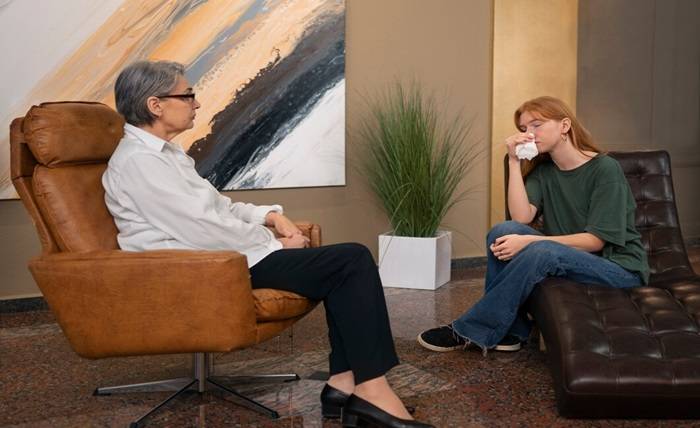Addiction is a complex issue affecting millions worldwide, and seeking therapy is a crucial step towards recovery. This article delves into various aspects of addiction therapy, providing insights into different therapeutic approaches and the challenges individuals may face during their journey to sobriety.
I. Introduction
A. Definition of addiction therapy
Addiction therapy, also known as substance abuse counseling, is a specialized field aimed at helping individuals overcome dependencies on drugs or alcohol. It involves a combination of psychological, medical, and holistic approaches to address the root causes of addiction.
B. Importance of addressing addiction issues
Acknowledging the significance of addiction therapy is paramount in understanding the role it plays in breaking the cycle of substance dependence. By offering tailored strategies, therapy helps individuals regain control of their lives and achieve sustained recovery.
II. Types of Addiction Therapy
A. Behavioral Therapies
1. Cognitive-Behavioral Therapy (CBT)
CBT focuses on identifying and changing negative thought patterns and behaviors associated with addiction. It equips individuals with coping mechanisms to manage triggers and prevent relapse.
2. Dialectical Behavior Therapy (DBT)
DBT combines cognitive-behavioral techniques with mindfulness strategies. It is particularly effective in addressing emotional dysregulation, a common issue among individuals struggling with addiction.
B. Medication-Assisted Therapies
1. Methadone Maintenance Treatment (MMT)
MMT involves the use of methadone, a medication that helps reduce cravings and withdrawal symptoms in individuals with opioid addiction.
2. Buprenorphine Treatment
Buprenorphine is another medication that, when used as part of a comprehensive treatment plan, aids in reducing opioid cravings and supporting recovery.
III. Holistic Approaches
A. Yoga and Meditation
Holistic therapies like yoga and meditation promote overall well-being and help individuals develop mindfulness, reducing stress and aiding in addiction recovery.
B. Art and Music Therapy
Expressive therapies such as art and music therapy provide alternative outlets for self-expression, offering individuals a creative means of processing emotions.
C. Exercise as Therapy
Regular physical activity not only contributes to physical health but also releases endorphins, improving mood and reducing the likelihood of relapse.
IV. Specialized Therapies
A. Family Therapy
Involving family members in the therapy process helps create a supportive environment, fostering understanding and communication among loved ones.
B. Group Therapy
Group therapy provides a sense of community and shared experiences, allowing individuals to connect with others facing similar challenges.
C. Individual Counseling
One-on-one counseling sessions offer personalized support, addressing the unique needs and goals of the individual in therapy.
V. Challenges in Addiction Therapy
A. Stigma Surrounding Addiction
Overcoming societal stigma is a crucial aspect of addiction therapy, as negative perceptions can hinder individuals from seeking the help they need.
B. Access to Treatment
Limited access to affordable and quality treatment remains a significant challenge, preventing some individuals from receiving timely and effective care.
C. Relapse Prevention
Developing effective relapse prevention strategies is essential in ensuring sustained recovery, as relapse is a common occurrence in addiction treatment.
VI. Success Stories
A. Personal Experiences of Overcoming Addiction
Sharing personal success stories highlights the resilience of individuals who have successfully navigated the challenges of addiction and emerged stronger.
B. Impact of Therapy on Individuals
Exploring the positive impact of therapy on individuals’ lives emphasizes the transformative potential of addiction treatment.
VII. The Role of Support Systems
A. Importance of Family and Friends
The support of family and friends is instrumental in the recovery process, providing encouragement and a sense of belonging.
B. Community Support
Community-based support, including 12-step programs and local organizations, offers ongoing assistance and connection during and after therapy.
VIII. Seeking Professional Help
A. Recognizing the Signs of Addiction
Educating individuals on recognizing signs of addiction is crucial in promoting early intervention and seeking professional help.
B. Taking the First Step
Initiating a conversation about addiction and seeking help is a courageous first step toward recovery, and therapy provides the necessary guidance and support.
IX. The Future of Addiction Therapy
A. Advances in Treatment Methods
Ongoing research and technological advancements are shaping the future of addiction therapy, introducing innovative and more effective treatment methods.
B. Integrating Technology in Therapy
Telehealth and digital tools are becoming increasingly prevalent in addiction therapy, improving accessibility and providing additional support for individuals in recovery.
X. Conclusion
A. Recap of the Key Points
Addiction therapy, with its diverse approaches, plays a vital role in supporting individuals on their journey to recovery. From behavioral therapies to holistic approaches, the combination of strategies addresses the multifaceted nature of addiction.
B. Encouragement for Seeking Help
If you or someone you know is struggling with addiction, seeking professional help is a commendable and transformative decision. Reach out to local resources, therapists, or support groups to start the journey toward a healthier, substance-free life.


